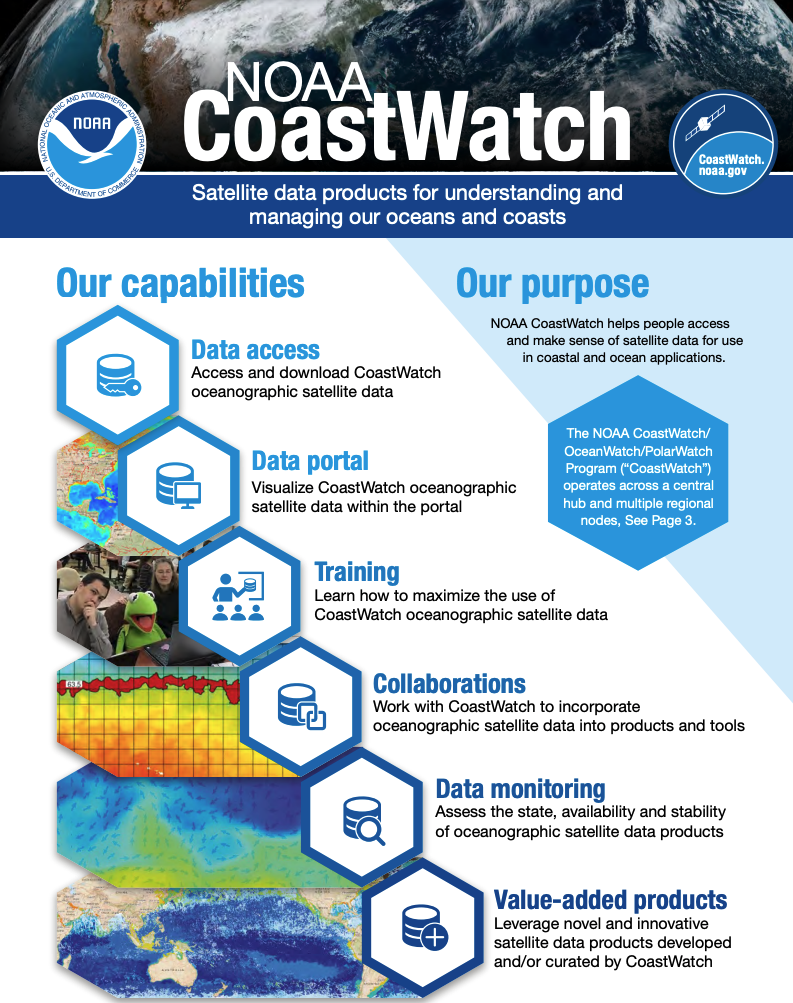NOAA PolarWatch
PolarWatch is a branch within the NOAA CoastWatch program, focusing on providing access to satellite observation data for high latitude regions, specifically the Arctic and Southern Oceans.
Established in September 2017, PolarWatch aims to support the goals set forth in NOAA's Arctic Action Plan by facilitating the discovery, accessibility, and utilization of satellite data products at high latitudes. It is hosted by NOAA Fisheries, in the Southwest Fisheries Science Center.
NOAA CoastWatch Program
Mission
The mission of NOAA’s CoastWatch is to provide timely access to near real-time satellite data to monitor, restore, and manage U.S. coastal ocean resources.
User Community
It serves a diverse user community, including federal, state, and local coastal resource managers, marine scientists, educators, and the general public. By delivering a wide array of satellite environmental data, CoastWatch plays a crucial role in supporting the efforts of coastal scientists and resource managers across all U.S. coastal waters.
Program Structure
NOAA CoastWatch is structured around a Central Operations office and several Regional Nodes.
Central Operations
Central Operations is responsible for coordinating the processing, delivery, quality control, and storage of data products and is managed by NOAA's National Environmental Satellite, Data, and Information Service (NESDIS).
Regional Nodes
Hosted at NOAA line offices located around the country, the distribution of the Regional Nodes allows for the development of satellite products and scientific expertise that are of regional importance.
